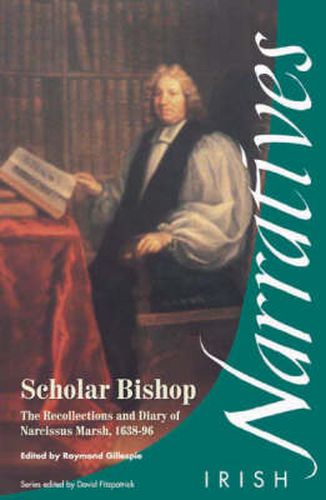Readings Newsletter
Become a Readings Member to make your shopping experience even easier.
Sign in or sign up for free!
You’re not far away from qualifying for FREE standard shipping within Australia
You’ve qualified for FREE standard shipping within Australia
The cart is loading…






Narcissus Marsh (1638-1696) was an English clergyman who spent his later life in Ireland, initially as provost of Trinity College, Dublin, and ultimately as Archbishop of Armagh. Despised by Jonathan Swift for his pietism and timidity, his achievements as churchman and scholar were impressive. Marsh’s recollections, begun in 1690 and continued in diary form up to 1696, are by no means the pious platitudes of a conventional 17th-century clergyman. With sometimes startling candour, he recounts dreams and anecdotes revealing his struggle against worldly temptations, his resolute rejection of prospective wives and his preoccupation with science, music and the defence of learning in the anarchic context of Williamite revolution. The religious and political contexts are authoritatively reconstructed in the editor’s introduction. Transcribed from an early manuscript copy, and supplemented by correspondence and contemporary assessments, Marsh’s recollections illuminate a lost spiritual world. Their publication marks the tercentenary of the famous Dublin library which bears his name.
$9.00 standard shipping within Australia
FREE standard shipping within Australia for orders over $100.00
Express & International shipping calculated at checkout
Narcissus Marsh (1638-1696) was an English clergyman who spent his later life in Ireland, initially as provost of Trinity College, Dublin, and ultimately as Archbishop of Armagh. Despised by Jonathan Swift for his pietism and timidity, his achievements as churchman and scholar were impressive. Marsh’s recollections, begun in 1690 and continued in diary form up to 1696, are by no means the pious platitudes of a conventional 17th-century clergyman. With sometimes startling candour, he recounts dreams and anecdotes revealing his struggle against worldly temptations, his resolute rejection of prospective wives and his preoccupation with science, music and the defence of learning in the anarchic context of Williamite revolution. The religious and political contexts are authoritatively reconstructed in the editor’s introduction. Transcribed from an early manuscript copy, and supplemented by correspondence and contemporary assessments, Marsh’s recollections illuminate a lost spiritual world. Their publication marks the tercentenary of the famous Dublin library which bears his name.